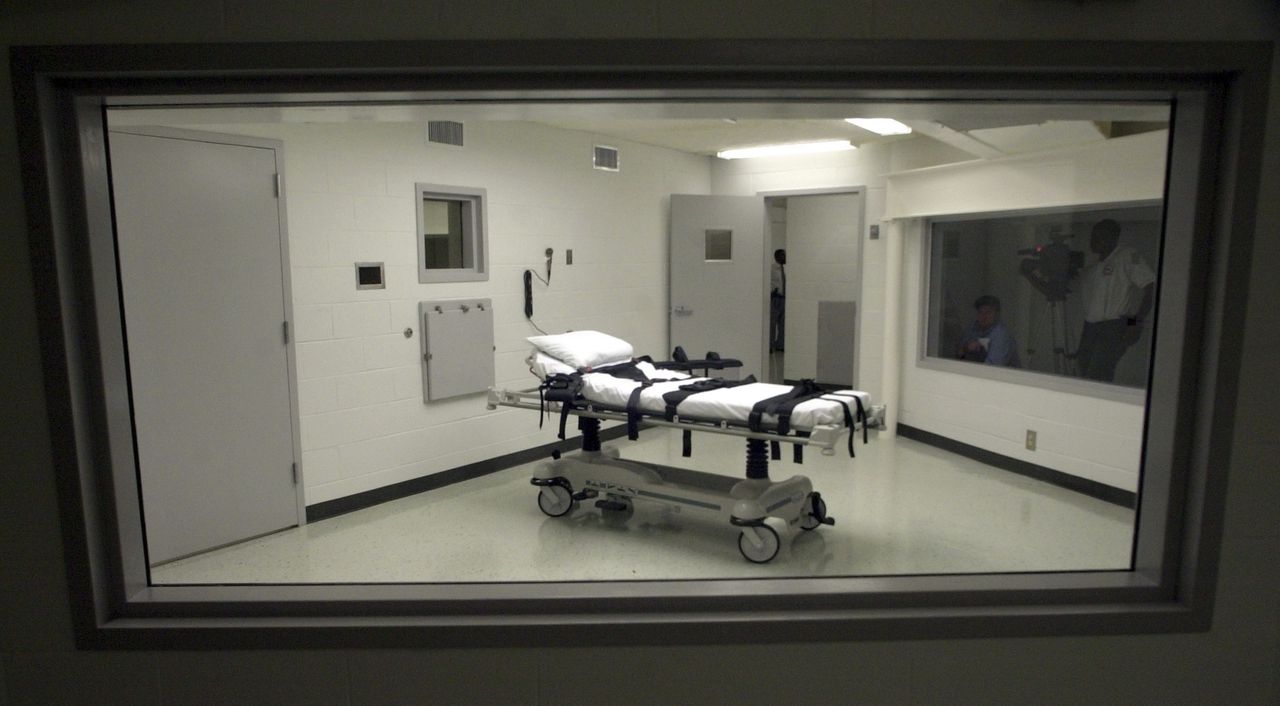Guest opinion: Alabamaâs execution efforts break protocol and precedent
This is a guest opinion
On May 30, Governor Kay Ivey sent a letter to the Alabama Department of Corrections (ADOC), ordering the execution of James Barber by lethal injection this month. Barber’s execution will be the first since November of 2022 when the Governor paused capital punishment and promised a “top to bottom review” of the state’s execution protocol. The pause was triggered by three consecutive botched executions, in a year that the Death Penalty Information Center dubbed the “Year of the Botched Execution.” All three of these executions involved lethal injection, the same method by which Barber is set to be executed.
The Alabama People of Faith Death Penalty Coalition is composed of dozens of individuals, representing a diversity of faith traditions and geographic areas of Alabama. While members of our coalition are opposed to the use of the death penalty and believe that all life is sacred and all people deserve dignity, we understand that it is currently part of the Alabama justice system. However, there are several issues of great concern about Mr. Barber’s scheduled execution.
In 2022, the state of Alabama botched three consecutive executions by lethal injection. One man died after three hours of apparent torture, while two others lived. Journalist Elizabeth Bruenig, writing in The Atlantic, called the state’s incompetence in these executions “a civil rights crisis.” ADOC spent hours attempting to find a vein, a suitable vein for the injection. In practice, this meant that these men, lying on their deathbeds, were poked, and prodded with needles for hours.
When other states, such as Tennessee and Oklahoma, have faced similar problems with lethal injection protocols and botched execution attempts, commissions were appointed by the states’ governors to conduct independent reviews and recommend changes for improvement.
In early 2023, Governor Ivey, rather than appointing an independent commission as in other states, tasked the ADOC to review its own protocols and practices. In response to this internal review, over 150 clergy from around the state, wrote a letter to the governor, requesting a “comprehensive, independent, and external review of Alabama’s death penalty procedures” that should not be “shrouded in secrecy.” In the letter, clergy asked for transparency, accountability, and humility in how the state of Alabama undertakes its responsibilities.
Rather than organizing an independent commission to conduct the review, Governor Ivey had the ADOC conduct its own internal review and now plans to execute Mr. Barber at any time between midnight on July 20 and 6:00 am on July 21. Ivey sought to reverse the longstanding precedent which limited execution warrants to a single date consisting of a 24-hour period. The Alabama Supreme Court complied and granted the Governor unrestricted discretion over the timeframe of executions.
While the alteration of the twenty-four hour execution window is one change to Alabama’s execution protocol during the pause – changes have occurred in staffing, rehearsals, and equipment – Barber’s execution is still at risk of mirroring the conditions which surrounded Alabama’s three preceding executions under conditions that are indicative of cruel and unusual punishment, thus violating the Eighth Amendment.
Governor Ivey’s order to execute Mr. Barber was issued on May 31 and released to the media on the same day. Representatives of the ADOC, including the Warden of the Holman Correctional Facility, did not notify Mr. Barber or his counsel until the following day, after it had already been announced in the media. This was in violation of the Department’s own procedures.
While the wisdom and morality of the death penalty may be debated, we believe that the citizens of Alabama deserve that such a weighty act as execution must follow rules and laws, that no execution should include any possibility of torture, and that the activities of the State should always be transparent, just, ethical, and carried out as competently as possible.
We urge our fellow citizens to be informed about how the death penalty is implemented in the state of Alabama and to join us in continuing to ask Governor Ivey to work to ensure competence and openness in its implementation.
If you have concerns, as we do, please contact the Governor’s office to voice those concerns at 334.242.7100 or email.
We also invite you to join the Alabama People of Faith Death Penalty Coalition at a multi-faith vigil at Resurrection Catholic Church in Montgomery on Wednesday, July 12 at 1pm CT.
Cynthia Carter is an Episcopal priest who recently retired from full-time parish ministry. Prior to her ordination, she worked for more than twenty years as a university faculty member in graduate health administration programs. She currently resides in Birmingham.
Luke Collins graduated from Yale College in 2022 . He is currently a legal assistant for a civil rights lawyer in Birmingham. He plans to attend law school in 2024.
